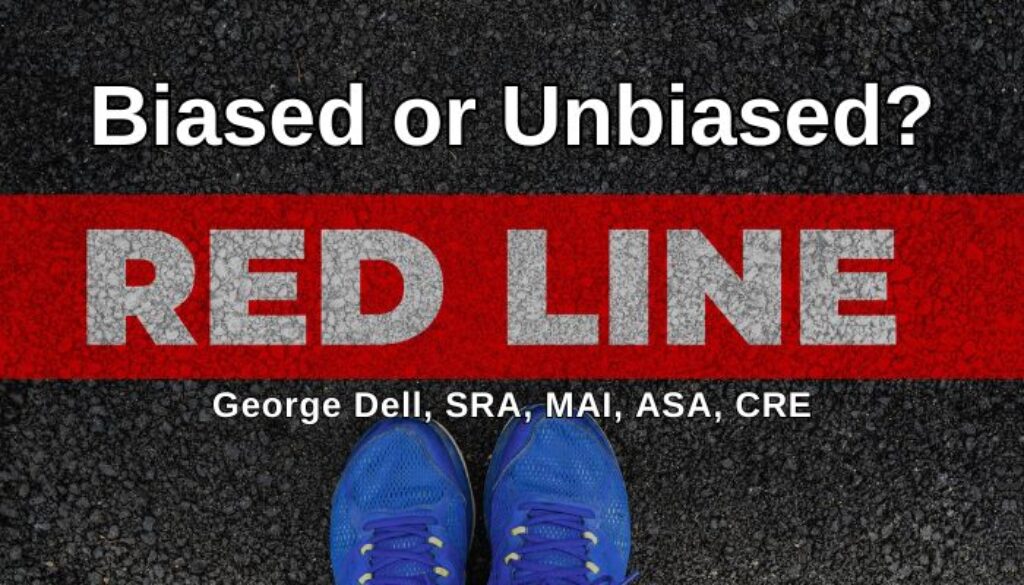Bias is an important topic right now.
So what are we really talking about? Is someone right? And others wrong?
Again, so much divisiveness today is the result of misunderstanding, and the tendency to believe whatever supports your prior opinion.
I have heard:
- Appraisers are biased (meaning racially biased).
- Appraisers are not biased, so stop picking on me!
For the record: I do not believe appraisers are any more or less racially biased than other people. (Actually, I have seen no evidence either way.)
What I have seen is correlation of variables, such as between minority areas, low prices, and formerly red-lined “neighborhoods.” The relationship of low generational wealth and former historical (or current) racially affected areas.
But correlation is not causation.
Appraisers do not determine prices. Markets (buyers and sellers) determine prices. Appraisers analyze those markets. The popular focus on appraisers prevents attention to the real underlying causes. Much easier to shoot the messenger.
My Problem: By education and inclination, I am obsessed with validity in research, and clarity of evidence versus opinion.
As so often happens, a starting point to mutual understanding – toward genuine spiritual compassion – is to look at the underlying word. Two groups use the same word “bias” with different meanings. My personal problem is worse. My “academic” meaning of the word is different yet!
My educational background is heavy in statistics, econometrics, and related fields such as survey research – all data evidence fields. To me, the word “bias” means that the result of an analysis can be either too high, or too low. Biased up, or biased down. Darn.
Those who have taken my SGDS classes will recall the story of “Goldilocks and the Three Appraiser Bears.” Mama Bear said: “I used just three comps. A good appraiser just doesn’t need any more.” Papa Bear had just taken an infernal statistics class and said, “I used every sale in the city.” Baby Bear had just taken a USPAP class and followed the rule to use “such comparable data as are available” and “necessary for credible assignment results.” And it was “Just Right!”
The science of data calls this the bias-variance tradeoff. This is the focus of data science-based valuation that we call Evidence Based Valuation (EBV)©. Simply put, the goal of [a data scientist] is to find the right evidence data, and optimal amount of data. There exists an ideal set of data, not too much and not too little.
When we get the data right, everything else seems to fall in place. It becomes possible to generate reproducible valuations. This in turn enables measured scoring of risk/reliability in individual valuations.
Now we can contribute to a rational, even-handed discussion of real solutions to the various aspects of racial bias issues. Appraisers can be bearers of the truth.
Independent, Impartial, and Objective.

July 10, 2024 @ 5:13 am
I am taking the 2024 USPAP. It is like a re education camp and the insinuations that appraisers are racially biased is an insult to all appraisers. One of the examples was that an appraiser will pick comps owned by minorities to bring the value of the property down. How can that even happen? I don’t know how that is possible or why someone would do that.
This is the first time I see comments on the USPAP in the the comment section on each page of the class by appraisers that are fed up with accusations. I have taken this class for many years and never seen this many comments. By the way I haven’t read your article yet and will be reading it later today.